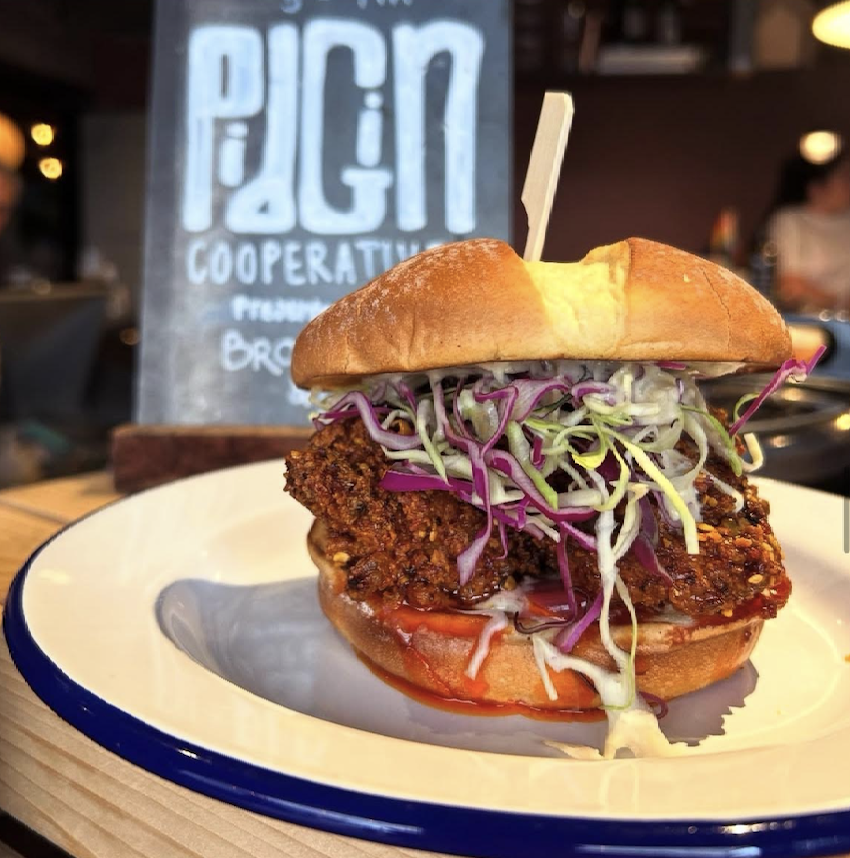'Co-ops are historically more resilient than typical ownership models'
Seattle restauranteur Zach Pacleb shares why the co-op model felt right and what it means to open a restaurant where everyone has real ownership.
• public
A version of this story first appeared in The Prep newsletter. To get it in your inbox, sign up for free by clicking here.
By Julien Perry | The Prep
Brothers Zach and Seth Pacleb have been fixtures in Seattle’s food scene for years, cooking in restaurants, catering events and selling their cult-favorite ramen and tacos at farmers' markets. But when the pandemic hit, like so many in the industry, burnout caught up with them.
Their next move? A full-on reset. They’re launching their first brick-and-mortar restaurant and bottleshop, Pidgin Cooperative, and it’s not your typical setup. Instead of following the traditional model, they’re building a worker-owned cooperative where employees have a stake in the business and a say in how it’s run; a business rooted in stability and sustainability, providing long-term jobs for their members.
We talked to Zach about why this model felt right, how it’s taking shape and what it means to open a restaurant where everyone has real ownership. —Julien Perry
How did the idea for the co-op come about?
A co-op had been on Seth’s mind for a while and it seemed like a good way to address a lot of the inequities we’ve all experienced in the restaurant industry. We have also talked to other co-op owners that found that sharing the responsibilities of ownership helped alleviate burnout that Seth and I were both experiencing.
What makes a co-op different from a regular restaurant?
Functionally, Pidgin will offer the same services as a typical counter service restaurant and bottle shop. Being structured as a cooperative will allow our team to make decisions collaboratively amongst their respective departments. Also, all worker-owners have a vote on some of the bigger financial and structural decisions that the business will face. This gives them more ownership over their labor and input on their workplace conditions.
What's your biggest challenge trying to get your restaurant off the ground?
Seattle is an expensive city and none of us come from wealthy families, so access to capital to open and maintain a food business is always challenging. However, from day one, we’ve been sustained by our customers and most of our community shareholders are either long-time guests to our market stand or catering clients. We are grateful for their continued support of us in this challenging industry.
What does a co-op allow you to do as a restaurant owner that a traditional business model doesn't?
Co-ops generally are able to weather the financial ups and downs typical of small businesses. They also have lower staff turnover because of the level of intention and commitment required of its worker-owners along with the many benefits of ownership.
What's been the public reception to your upcoming restaurant? We know you surpassed your initial Kickstarter goal of $50,000.
We are glad to see so much anticipation for our restaurant from the city. Some of our market regulars are sad not to have us as a part of their weekly routine, but are excited for this next phase of the business. We are excited to be joining the Fisherman’s Terminal family and regularly have people poking their head in the door during construction to express their anticipation.
What advice do you have for someone who may be looking to open their own restaurant?
Make it a worker-owned cooperative! We need more of them in our industry and co-ops are historically more resilient than typical ownership models. This process can take a bit longer to set up, but by building a team that has vested interest in the future of the business, we can tackle these challenges together.
Thanks for reading today's edition! You can reach the newsletter team at editor@theprep.co. We enjoy hearing from you.
Interested in advertising? Email us at newslettersales@mvfglobal.com
Was this email forwarded to you? Sign up here to get this newsletter once a week.
The Prep is written by Julien Perry and edited by Lesley McKenzie.
